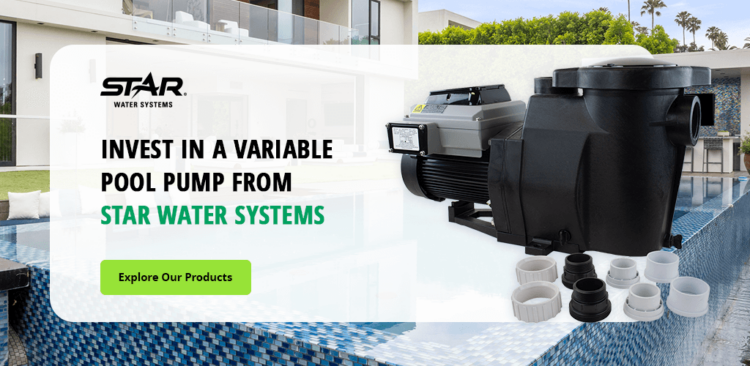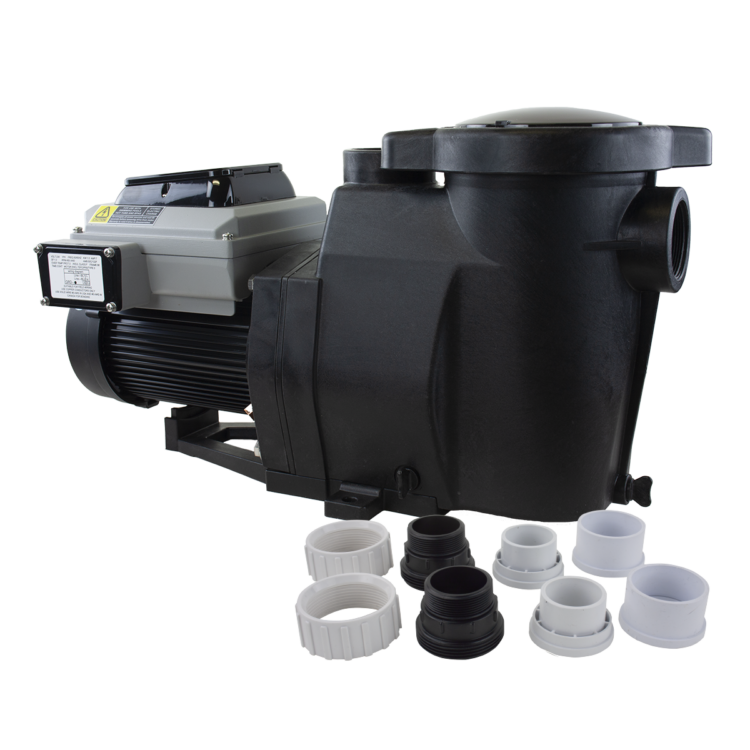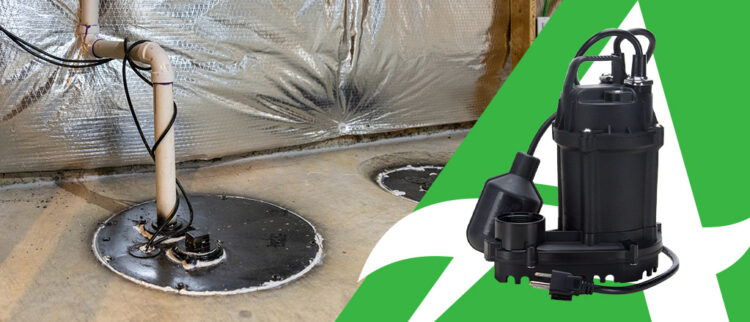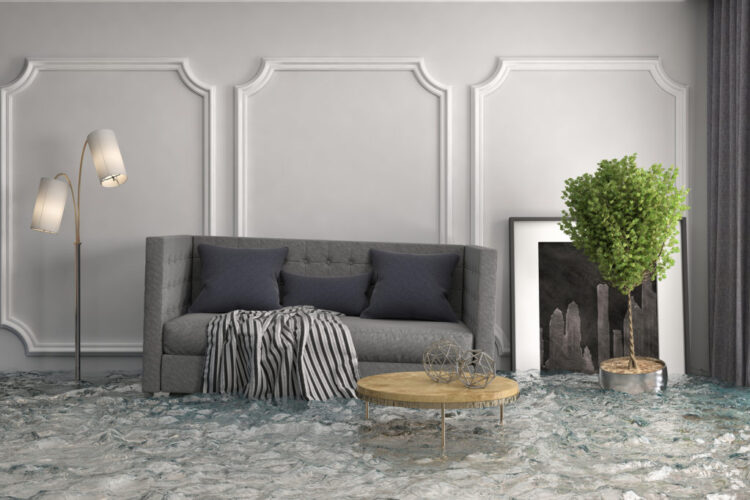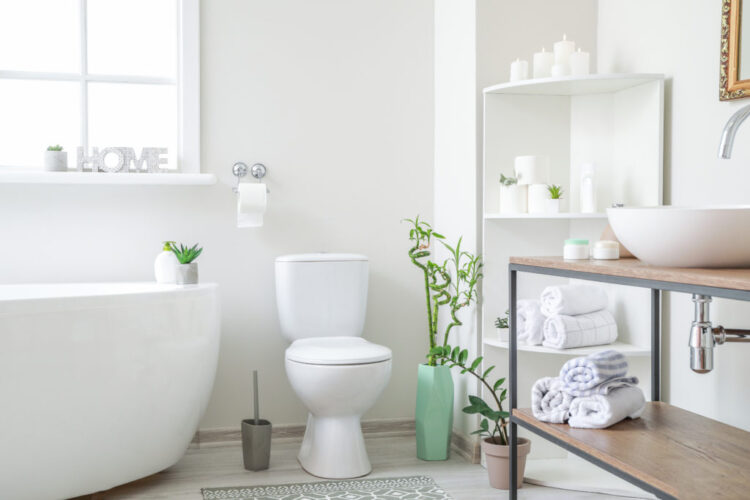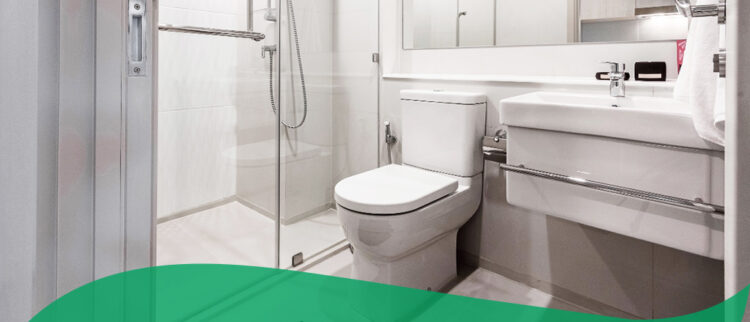Single pumps run on one speed, while variable pumps can be adjusted to run at several speeds.
The right pump for your pool depends on your pool’s size and water volume. You can find both types of pumps to suit different pool sizes, although variable-speed pumps tend to have more features.
Use this guide to compare various pros and cons to help you find the best pump for your unique pool. When you invest in a quality pump, you’re directly impacting the clarity and sanitation of a pool. Finding the right type and power will make enjoying your pool during warm months easier.
Pool Pump Comparison: Single vs. Variable-Speed
Choosing between single and variable-speed pumps depends on your needs and preferences. Here’s a quick breakdown so you can see which type of pump is the best fit for you.
What Are Single-Speed Pool Pumps?
As their name suggests, this kind of pool pump runs at a single speed. Benefits of single-speed pumps include:
- Affordable upfront cost.
- Reliable motors and parts.
However, single-speed pumps are not the most energy-efficient option. They can be slightly more expensive to run than other models, so they’re not always the best fit for home pools. Because they run with only one speed, you need to ensure the speed you choose has enough horsepower to thoroughly clean your pool.
What Are Variable-Speed Pool Pumps?
By contrast, variable-speed pool pumps can be adjusted to run at several different speeds. This helps save energy costs because you can adjust the pump power according to your pool’s needs.
The primary benefits of choosing a variable-speed pool pump include:
- Energy cost savings.
- Good chemical distribution.
- Excellent filtration.
Variable-speed pool pumps are more expensive upfront, but the energy savings with variable-speed pool pumps make up for the initial cost over time.
You can find these pumps with advanced features and an especially quiet operation, so your backyard is tranquil even when the pump is running.
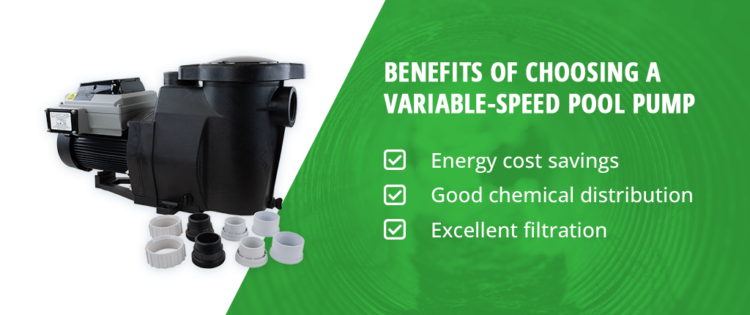
Which Pool Pump Is Best for My Pool Size?
The size of your pool is the most important factor to consider when finding the best pump. You want your pump to keep the water clean without requiring too much energy consumption and costs.
Striking the right balance involves some quick calculations.
Measure the Volume of Water
First, you need to know the volume of water in gallons that your pool contains. Ensure you have the measurements for your pool, including its width, length and depth. A pool professional can help you accurately determine the volume.
If your pool is a rectangle or square, multiply the width, length and depth in feet. Then, multiply that result by 7.48 (the number of gallons in one cubic foot of water) to find the water’s volume in gallons.
The formula will look like this: Volume = Width x Length x Depth x 7.48
If your pool is a round or oval shape, multiply the radius in feet by itself to find the radius squared. Multiply that by average depth in feet. Then, multiply that figure by 3.14 (approximately pi) and then multiply again by 7.5.
The formula for round pools will be: Volume = Radius x Radius x Depth x 3.14 x 7.48
Remember, these calculations are an estimate, and your actual volume can vary.
Find the Turnover Rate
The second step to choosing the right pool pump for your needs is finding the turnover or flow rate in your pool. This is how long it takes for all the water in your pool to circulate through the pump one time. Your water should all be circulating at least once every six to eight hours, although a shorter turnover rate is even better. Ideally, all the water should be filtered two to three times a day.
To calculate the flow rate, you can divide your pool water volume by six to eight hours. This will tell you how many gallons per hour (GPH) are needed to move through your system to achieve an optimal turnover rate.
To find the gallons per minute (GPM), divide that number again by 60. You can use this number when shopping for pool pumps to make the best decision.
Consider the Horsepower
Horsepower tells you how strong a pool pump is. Pumps with a lower horsepower may not be able to move enough gallons of water through your filtration system to reach an optimal flow rate. However, pumps with a higher horsepower than you need can damage your filter by overusing it.
To find the right horsepower for your pool, use the required flow rate (GPM) that you calculated for your pool. If you choose a single-speed pump, you need one that meets that range because you won’t be able to change the speed. On the other hand, a variable pump that covers the right range of GPM will work because you can adjust it to suit your pool’s volume and flow rate.
Research Additional Factors
Once you’ve found a pump that mechanically meets your needs for flow rate, you can consider other necessary and fun features. Here are a few additional pump factors that can make your pool experience better:
- Compatibility: Make sure the pump you choose is compatible with other pool equipment. For example, families with a pool automation system should shop for pumps that can be integrated into that system easily.
- Programmable timers: If you can program the pump to run at certain times of the day with a timer, you won’t have to remember to start it or turn it off.
- Self-priming features: In-ground pools need a self-priming pump, so you don’t have to manually re-prime it if the pump gets air in the suction line. With a self-primer, the pool pump can resume working on its own.
- Energy efficiency: Some pumps are more efficient than others and can save you energy costs over the long term. Look for ENERGY STAR ratings to find a pump with the best energy efficiency.
If you want to invest in quality features that make using your pump more convenient, variable-speed pumps are typically a better option than single-speed pumps. Variable-speed pumps come with more programmable options and often have self-priming features.
When you compare single-speed vs. variable-speed pool pump efficiency, variable-speed pumps have a higher efficiency regardless of pool size.
Invest in a Variable Pool Pump From Star Water Systems
Star Water Systems has been building pumps since 1866. We pride ourselves on offering high-quality products you can rely on, whether you need a pump for your pool, basement drainage, well, irrigation, or sewer system. Our variable-speed pool pump is perfect for pools, spas and water features.
Some of this pump’s features include a heavy-duty TEFC motor and self-priming action for quick startup. The horsepower varies from 1-½ horsepower. Despite its power, our variable-speed pump also offers quiet operation so your backyard can feel like the oasis of your dreams. Browse our products today to find the perfect pool pump for your needs!
